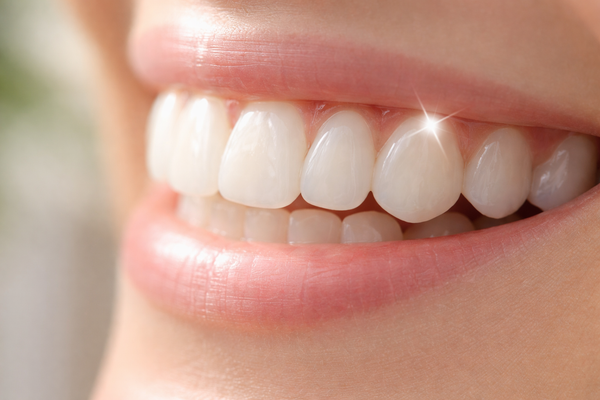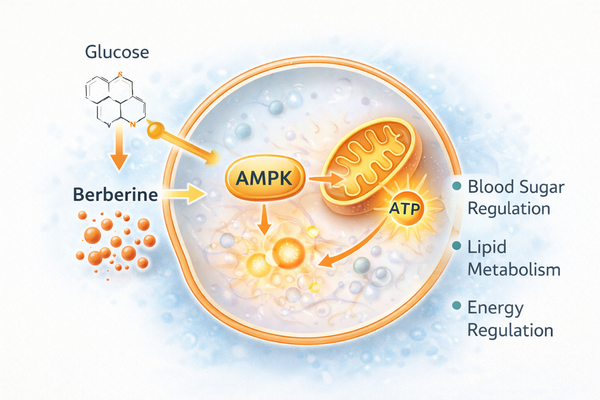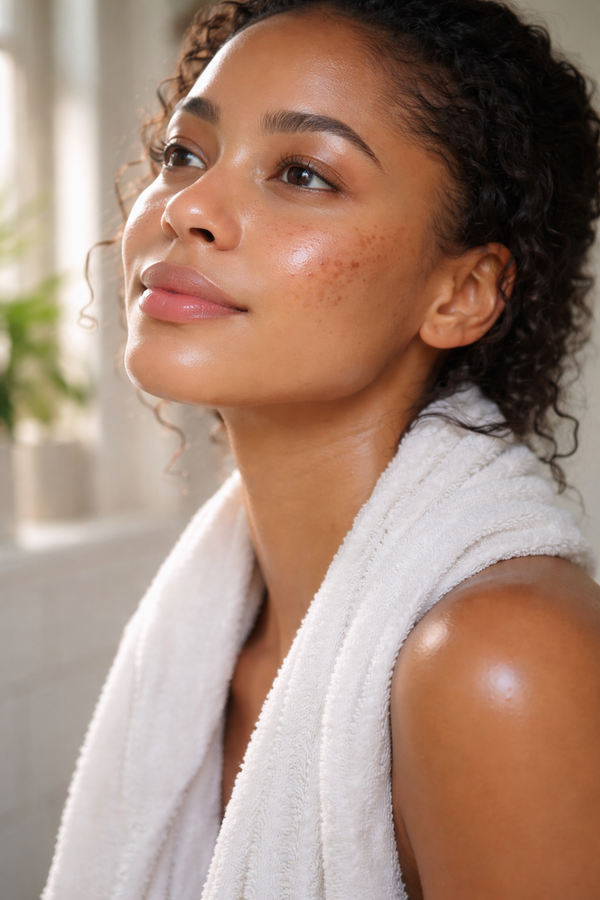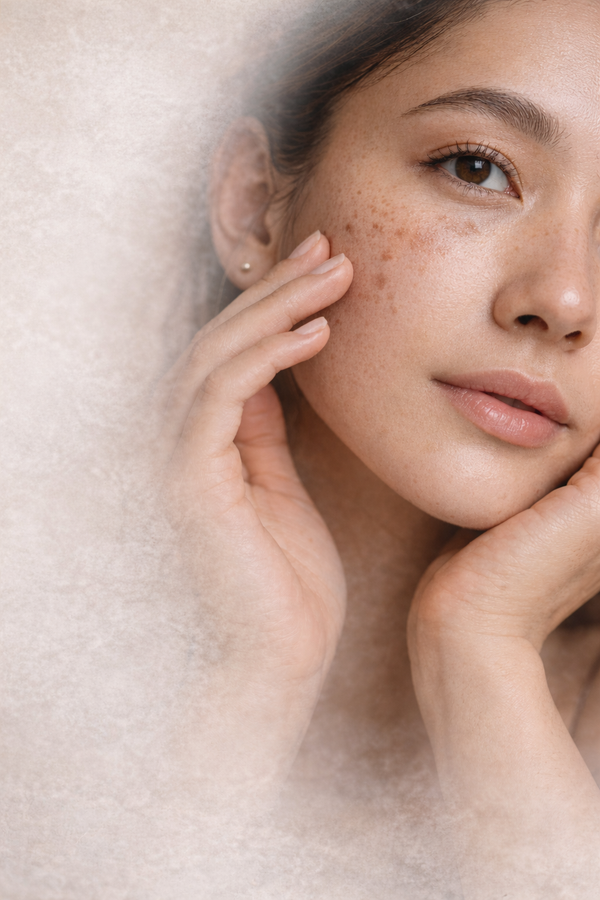Evening Routines That Improve Sleep Quality and Reduce Stress Naturally
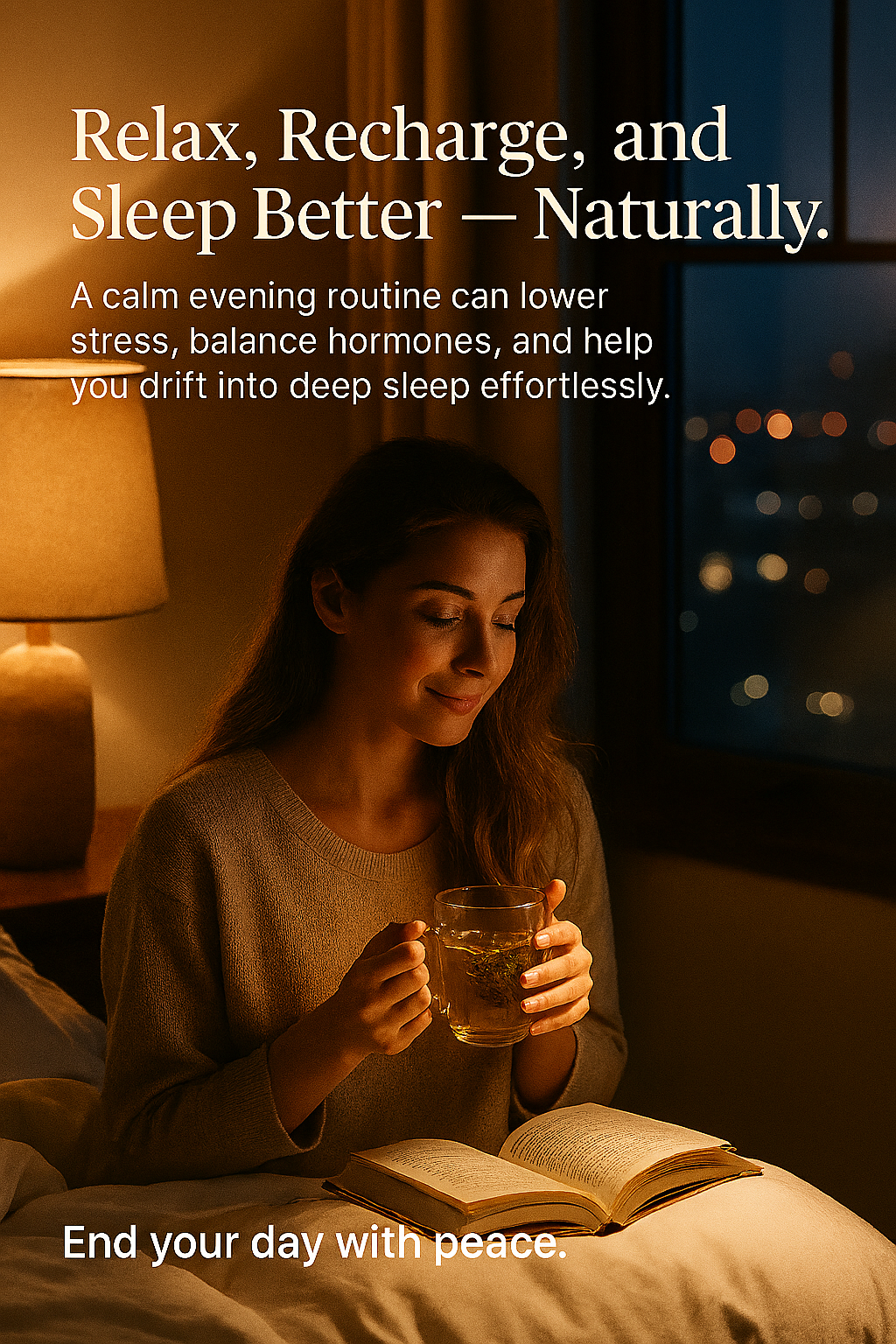
- Why evening routines matter
Your body follows a 24-hour internal clock known as the circadian rhythm — it regulates energy, hormones, and sleep patterns. When you stay up late or scroll on your phone before bed, you confuse this rhythm. Establishing a calm and consistent evening routine helps the body produce melatonin, the hormone responsible for deep sleep.
A structured nighttime ritual isn’t just about falling asleep faster; it helps you wake up refreshed, improves focus, and reduces cortisol (the stress hormone).
2. Dim the lights and reduce blue light exposure
An hour before bed, lower the brightness of your surroundings.
Switch from harsh white LED lights to warm lighting (2700K) or use a salt lamp. Avoid phones, tablets, or computers — their blue light suppresses melatonin by up to 50%, according to Harvard Medical School research.
If you must use devices, install filters like f.lux or turn on “Night Shift” mode.
3. Sip calming herbal teas
Instead of alcohol or sugary drinks, choose natural sleep aids like:
- Chamomile tea – contains apigenin, which binds to brain receptors to promote calmness.
- Lavender tea – reduces anxiety and improves sleep latency.
- Valerian root tea – supports GABA production for relaxation.
Avoid caffeine after 3 PM — it can linger in your system for 8 hours or longer.
4. Practice mindful unwinding
Spend at least 15 minutes in a slow, mindful activity:
- Read a physical book (not on a screen).
- Stretch gently — focus on hips, shoulders, and neck.
- Write a gratitude journal — jot down 3 things you appreciated today.
- Meditate for 5–10 minutes; studies show meditation increases melatonin and improves sleep onset by up to 30%.
Consistency is more important than perfection — find what feels natural.
5. Create the perfect sleep environment
Optimize your bedroom for rest:
- Keep temperature around 18–20°C (65–68°F).
- Use blackout curtains to block light.
- Choose cotton or bamboo sheets that breathe well.
- Diffuse essential oils like lavender or cedarwood for calm air quality.
Invest in a comfortable pillow and mattress — poor spinal alignment can cause tension and frequent awakenings.
6. Disconnect to recharge
The brain needs time to transition from stimulation to rest. Try a “digital sunset” rule — turn off all screens 30–60 minutes before bed.
If your mind races, write your thoughts down instead of mentally replaying them.
Silencing notifications and placing your phone outside the bedroom improves sleep efficiency by up to 23%, according to Sleep Foundation research.
7. Nutrition that supports deep sleep
Certain nutrients enhance melatonin and serotonin naturally:
- Magnesium – found in almonds, spinach, and pumpkin seeds; relaxes muscles.
- Tryptophan – from turkey, oats, and bananas; helps produce serotonin.
- Complex carbs – like brown rice and sweet potatoes, support relaxation hormones.
Avoid heavy or spicy foods within 2 hours of bed — they cause digestive discomfort and raise body temperature, which can delay sleep.
8. Sample 60-minute evening routine
Here’s a realistic, research-based plan:
- 🕗 8:00 PM – Dim lights, have herbal tea.
- 🕣 8:30 PM – Journal or stretch.
- 🕘 9:00 PM – No screens, play soft music or ambient sounds.
- 🕤 9:30 PM – Read a few pages or meditate.
- 🕙 10:00 PM – Lights off.
Following this rhythm for even 7–10 days can reprogram your circadian system and reduce late-night anxiety.
9. Morning impact of better nights
When you sleep deeply, your cortisol stabilizes and your parasympathetic nervous system activates — the body’s natural recovery mode.
You’ll notice:
- More stable mood
- Better focus and memory
- Stronger immune response
- Improved metabolism and appetite control
Good sleep doesn’t just make you feel better — it slows aging, supports weight loss, and boosts emotional resilience.
💬 Final Thoughts
Evening routines are not about restriction; they are about self-care and rhythm.
The most powerful wellness transformations begin not in the morning, but in how you end your day.
“Rest is not idleness. It’s recovery.”
